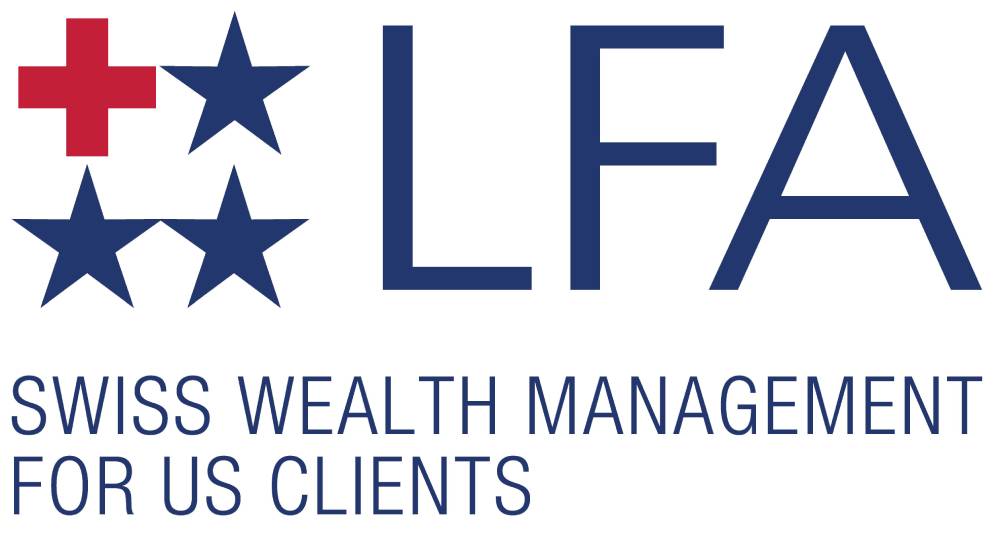Inflation is the silent killer of your savings. Since the U.S. dollar has lost more than 95% of its value since 1913, it’s likely that you’ve seen this firsthand in your own life: a dollar today will not buy nearly as much as it once did. This is especially true when it comes to fixed-income investments like savings accounts and CDs.
It’s also why our experienced team of financial advisors located in Switzerland recommend diversifying into foreign currencies and other global investments that will protect against inflation without sacrificing returns or convenience. After all, what good is your investment strategy for inflation if your wealth is just going to lose value?
This article will walk you through understanding:
- How inflation can impact your savings
- Types of investments that are immune from U.S. inflation
- How keeping money in a Swiss bank account is helpful
- How to stay financially disciplined
- Protecting yourself with overseas accounts and investments
Discuss wealth management overseas with a Swiss financial advisory firm like LFA that specializes in working with high-net-worth Americans.
How inflation can impact your savings
Inflation is a sneaky thief that can reduce the value of your savings over time. If you are ready to learn more about inflation’s impact on the value of your savings and how to protect your nest egg from its effects, you’re in the right place.
As you may be well aware, inflation occurs when demand for goods and services outpaces supply, pushing up prices across the board. While this may sound like it’s in favor of you as a consumer, it’s actually not so great: as inflation reduces purchasing power, it makes it harder to buy things with what you have.
This means less flexibility in how much you can spend because every dollar will be worth less than before. Plus, if prices rise faster than wages do (which is often the case), then you have even fewer resources left over after paying for essentials like groceries and mortgage payments—even if you work hard or save diligently.
What investments are likely to maintain their value over time?
It’s a wise idea to put your money in investments that are immune from U.S. inflation, and are more inclined to maintain their value over time. Wealthy families are widely known to invest in a variety of assets, currencies, and commodities based on their available assets, risk tolerance, and financial goals. Here are a few tips to consider:
- Invest in gold and silver: These precious metals have been a safe haven for investors since the beginning of time, and they will likely remain so in your lifetime. If you choose to invest directly in gold or silver, however, be aware that prices are volatile and that you’ll need to keep track of them carefully.
- Invest in foreign currencies: The dollar has lost value over time—sometimes quickly, sometimes slowly—but it’s always lost value. If you’re worried about inflation, consider buying shares of companies whose earnings are denominated in other currencies rather than dollars, like the safe Swiss franc.
- Invest in real estate outside of America’s borders: Some people argue that real estate investments aren’t immune from inflation because they require upkeep costs as well as mortgage interest payments every month, but if done right these factors can actually work toward minimizing risk over time regardless what happens domestically here inside America itself
 where our currency continues falling further into debt every day…
where our currency continues falling further into debt every day… - Use Switzerland as your investment destination: High-net-worth families have a more sophisticated portfolio. If you have assets to invest in international markets, you’ll likelyinvest in businesses, stocks, bonds, and real estate. This requires more investment expertise, which is why it pays to work with a Swiss wealth manager who has worked with wealthy Americans for years.
If you are wondering how to start an overseas bank account, reach out for dignified support in developing a family office structure to maximize your return and protect your investment. You and your family deserve the best in the industry, so don’t settle.
Consider keeping income in a Swiss bank account
If you want to keep your savings from being eroded by the U.S. inflation rate, it’s a good idea to open a foreign bank account in Switzerland. Switzerland is an excellent destination for your safe nest egg, as Swiss financial advisors dispose of a great expertise in helping wealthy families navigate the global financial markets. Switzerland is a perfect gateway to access global markets.
Stay disciplined with your spending and avoid lifestyle inflation
Once you’ve taken a look at your financial situation, making and sticking to a budget is the next step. This will allow you to see how much money you actually have coming in and going out each month. The key here is discipline when it comes to spending.
Don’t go on spending sprees just because inflation has made your dollars worth less. Instead, save and spend what’s absolutely necessary for daily life (and even then, try not to waste those funds). It’s important not to get into debt in order not only to avoid lifestyle inflation but to protect against bankruptcy and foreclosure in case anything goes wrong with an investment or job loss.
If you are feeling challenged with spending responsibly to avoid lifestyle inflation, it will help to explore alternate ways of reducing expenses with the team at LFA.
Keep your head down, eyes open for opportunities

The best way to protect your savings from the ravages of inflation is to do what you can to avoid it in the first place. If you’re going to be exposed, then at least make sure that you’re getting something out of it.
The obvious thing here is that you should look for opportunities overseas. The opportunities available through foreign markets are only growing more numerous with time, so keep your eyes open!
You can also diversify by investing in different sectors of the economy and asset classes. This will help ensure that even if one area suffers due to inflationary pressures, others will remain unaffected or even thrive because they aren’t as strongly affected as others.
Protect yourself with overseas accounts and investments.
It’s the Fed’s job to print money for their constituents. Inflation is a way to make money by printing more currency, which can lead to the devaluation of the U.S. dollar. If you have your savings in U.S. currency, these dollars will be worth less each year due to inflation.
In order to protect yourself from this risk, you need to invest in assets that are not impacted by inflation. If you want your income from work or investments outside of the United States, put it into foreign bank accounts so that when it comes time for repatriation back into the states, there won’t be penalties or taxes due on this income.
Review your finances regularly with a financial advisor at LFA to ensure you’re still on track
With some simple adjustments to your finances, you can protect yourself, your savings and investments from the effects of inflation. Luckily, there are plenty of ways to do this. You just have to know where to look and who to trust in getting financial advice.
If you follow these tips and stay disciplined with your spending, you can offset financial worry and stress.
If you don’t have a financial advisor, contact the team at LFA today.
If you do have a financial advisor, make sure they provide the service of reviewing your finances regularly with other professionals (like accountants or tax attorneys) to ensure that all bases are covered when it comes to protecting your savings from U.S. inflation.


